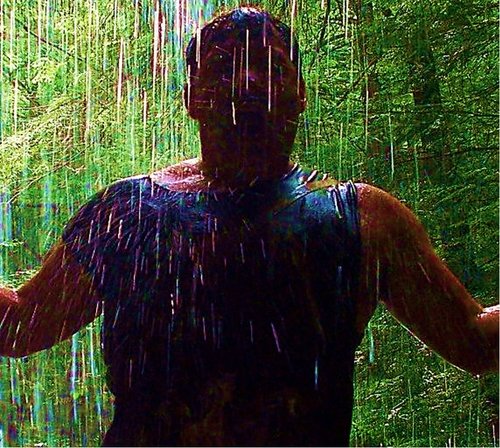MOVIE REVIEWS
 Review by Wuchak
Review by Wuchak
_**Weird desert-survival 60's Western with Jack Nicholson & Warren Oates**_ "The Shooting" is an offbeat 1966 Western directed by Monte Hellman and written by Carole Eastman (using the pseudonym "Adrien Joyce"). The story involves two men (Warren Oates and Will Hutchins) who are hired by a mysterious woman (Millie Perkins) to accompany her to a town located many miles across the Utah desert. During their journey they are tracked and joined by a mysterious black-clad gunslinger (Jack Nicholson) who is known by the woman. This early Nicholson vehicle is worthwhile if you have a taste for out-of-the-ordinary films. Millie Perkins is fetching and Will Hutchins is a convincing youngster sidekick while Oates is a good every-man protagonist and Nicholson just oozes quiet antagonism. It's easy too see how the 'kid' would be infatuated by the cutie, despite her dubiousness, but it's even easier to understand Willet's grave suspicions. The movie is also a must for anyone who likes lost-in-the-desert flicks. While the ending seems nonsensical, the answers are there, if you look closely and chew on the details... ***SPOILER ALERT*** (Don't read this paragraph unless you've seen the film). As the story progresses it becomes clear that the woman is hunting Oates' brother who apparently killed a child or a midget, likely the woman's child, close friend or relative. When they finally catch up to him at the very end we discover that the supposed murderer is Willet's TWIN brother who looks exactly like him, which explains his name, Coin (as in, 'the other side of the coin'). Since this is so, why didn't the woman assume Willett (Oates) was the person who killed her child since he looks exactly like the one who did, Coin? Obviously she was informed that Coin had a twin brother living near the town and she felt he would be the best person to track the culprit. In any case, the twin brothers represent the duality of human nature: Willet symbolizes the good and positive side whereas Coin embodies the more destructive aspects of our nature. As such, the Gashade brothers symbolize the two converging sides of the existential coin pertaining to the human experience which come together with catastrophic results at the climax. ***END SPOILER*** Bottom line: "The Shooting" is a worthy bare-bones independent 60's Western with occasional flashes of surrealism and brilliance, as well as a lot of humdrum mundaneness (so be prepared for some slow, dull stretches). It's less straightforward than its sister film "Ride in the Whirlwind," which was made just before this one and on the same (or nearby) locations. Some have called it the first "acid Western" but I wouldn't go that far. It has some weird touches, but not too weird. The film runs 82 minutes and was shot in Kanab, Utah. GRADE: B/B-